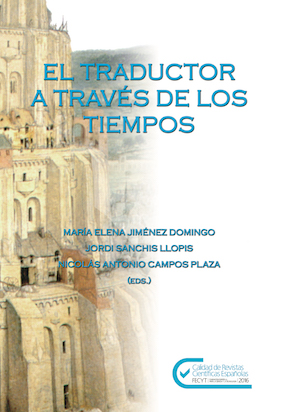The intratranslation of Alexandros Papadiamandis's works: The linguistic question
DOI:
https://doi.org/10.7203/qfilologia.21.9320 Abstract
Abstract
Alexandros Papadiamantis (1851-1911), considered the best Greek writer of his time, wrote mainly short stories and some novels, among which the best known is ? ??????? (The Murderess). His works are written in the form of Modern Greek called ???????????, «purist», artificially cultured and archaic, typical of the prose in that time, as opposed to ????????, demotic, which eventually prevailed at all levels; the confrontation between the advocates of these language forms is called ???????? ??????, «Greek language question»; the controversy that accompanied the intratranslation of some Papadiamandis’ works to demotic Greek, made along the last decades, can be seen as a sequel of this «language question». This paper aims to explain this whole situation, and the motivations and criteria for such intratranslation.
Keywords: Papadiamandis; Greek; katharevousa; demotic; intratranslation.
 Downloads
Downloads
Downloads
Published
How to Cite
-
Abstract499
-
PDF (Español)416
Issue
Section
License
 Este obra está bajo una licencia de Creative Commons Reconocimiento-NoComercial-SinObraDerivada 4.0 Internacional.
Este obra está bajo una licencia de Creative Commons Reconocimiento-NoComercial-SinObraDerivada 4.0 Internacional.
Authors who publish with this journal agree to the following terms:
- Authors retain copyright and grant the journal right of first publication with the work simultaneously licensed under a Creative Commons Attribution License that allows others to share the work with an acknowledgement of the work's authorship and initial publication in this journal.
- Authors are able to enter into separate, additional contractual arrangements for the non-exclusive distribution of the journal's published version of the work (e.g., post it to an institutional repository or publish it in a book), with an acknowledgement of its initial publication in this journal.
- Authors are permitted and encouraged to post their work online (e.g., in institutional repositories or on their website) prior to and during the submission process, as it can lead to productive exchanges, as well as earlier and greater citation of published work (See The Effect of Open Access).



